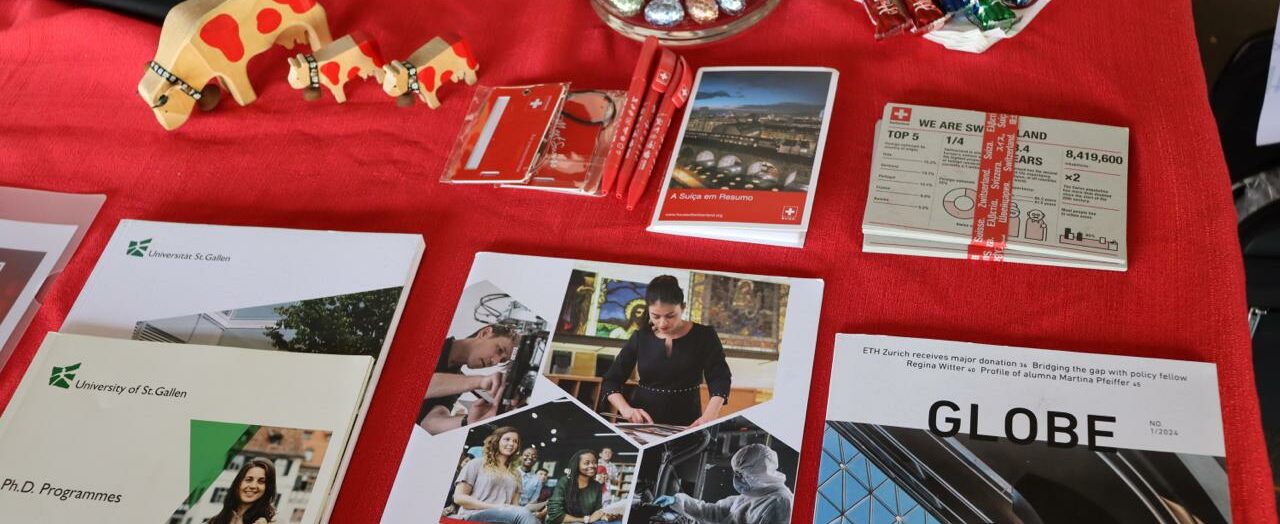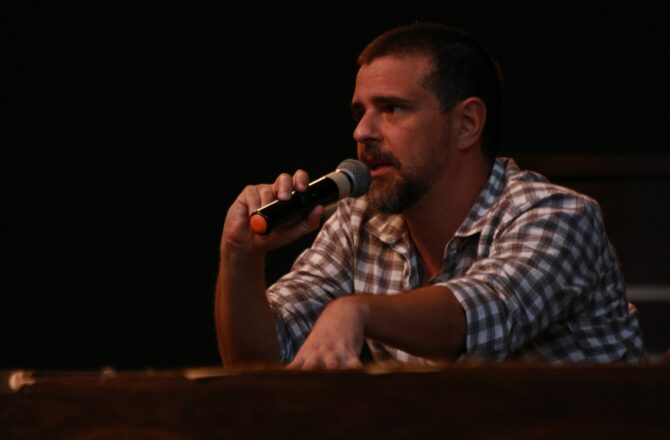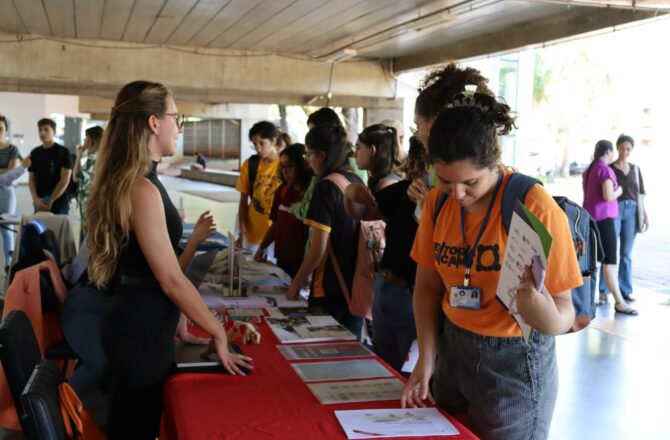Pedro Capra
– By Pedro Capra, Academic Relations Program Manager at Swissnex in Brazil
The 11th edition of the Study in Europe Roadshow took place between April and May 2024. It toured Brazil, presenting Swiss higher education and funding opportunities to students, researchers, and professors interested in international cooperation in research, education, and innovation.
In partnership with representatives from Germany, France, Spain, Italy, Ireland, and Sweden and with the support of CONFAP (National Council of State Research Support Foundations), the Study in Europe visited four regions of Brazil: the North, Northeast, Midwest, and Southeast. Unfortunately, due to the tragic calamity in Rio Grande do Sul, the event was impossible to hold in Porto Alegre as scheduled.
The event attracted a lot of interest in all the cities visited during the 2024 roadshow, with a diverse audience attending both the event and the stands. Our team answered many questions on how to get a place at a Swiss university, accompanied by excitement about the possibility of accessing Switzerland’s competitive higher education system and its entire innovation ecosystem.
Pedro Capra, our Academic Relations Program Manager presenting Switzerland and its opportunities at Federal University of Roraima (UFRR)
Switzerland drew a lot of attention in the cities the Roadshow passed through, mainly due to the quality of its universities and innovation parks and the fact that it has been the most innovative country in the world for more than a decade. Undoubtedly, the best Brazilian students and researchers will seek ways to collaborate with Swiss universities.
The Swiss government’s Scholarships for Excellence program is the primary tool for fostering connections between Switzerland and Brazil, providing a distinctive opportunity for internationalization. However, it is not the only one. Tools to support international cooperation in Science, Technology, and Innovation offered within the framework of the public policies planned by SERI, such as the “Leading House,” are valuable instruments for reducing the distance between researchers in the two countries and fostering collaboration.
In addition, Switzerland’s participation in the Study in Europe Roadshow 2024 allowed students to learn more about the opportunities available in the different regions of Brazil, with its local diversity reflected in scientific production.
Larissa Hess, our Finance & Project Manager welcoming students at State University of Campinas (Unicamp), SP.
This closer connection allows us to identify the best way to stimulate international cooperation in Science, Technology, and Innovation between Switzerland and Brazil. It enables us to access the best resources from each region of the country, which we can offer to our partners through structured programs well-connected with cutting-edge academic production. This is one way that Swissnex in Brazil can expand its programs beyond the Amazon region.
With these initiatives, Swiss and Brazilian researchers are positioned to deepen their professional connections and foster a collaborative environment that will drive innovation and academic excellence in both countries for years to come.
Pedro Capra


